Introduction
Lung cancer is a type of cancer when the cells in the lung undergo abnormal changes and multiply uncontrollably forming a tumour. According to WHO lung cancer is about 13% of all new cancer cases.
Understanding Lung Cancer
Lung cancer is a type of cancer that begins in the lungs when cells start to grow uncontrollably, forming a tumour. There are two primary types of lung cancer: non-small cell lung cancer (NSCLC) and small cell lung cancer (SCLC). These types are distinguished by the size and appearance of the cancer cells and how they grow and spread.
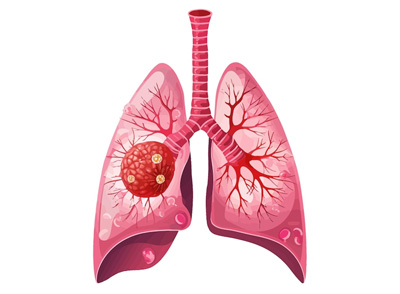
Causes of Lung Cancer

1) Smoking
Tobacco smoke contains carcinogens that damage the cells in the lung leading to development of cancer.
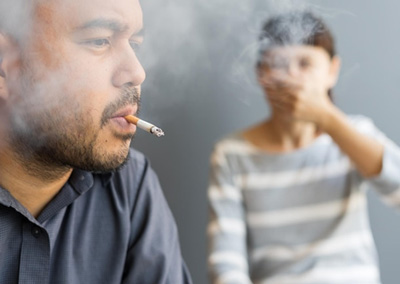
2) Passive Smoking
Exposure to smoke from other people’s cigarettes, cigars,pipes can increase the risk of cancer.
3) Radon Gas
Inhalation of radon a radioactive gas that naturally occurs in soil and rocks can lead to cancer.
4) Radiation Therapy
Previous radiation therapy to the chest for other medical conditions, such as breast cancer or lymphoma, can increase the risk of developing lung cancer later in life.

5) Occupational Exposure
Exposure to certain substances and chemicals in the workplace can increase the risk of lung cancer. These include asbestos, arsenic,chromium, nickel, uranium, and some chemicals used in mining, construction, and manufacturing.
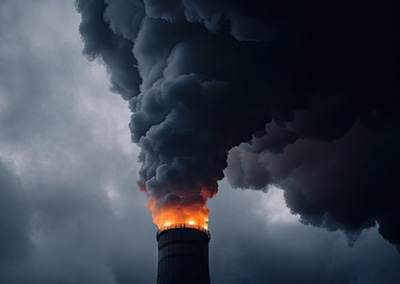
6) Air Pollution
Long-term exposure to air pollution, including vehicle exhaust, industrial emissions, and particulate matter, has been linked to an increased risk of lung cancer, particularly in urban areas with poor air quality.
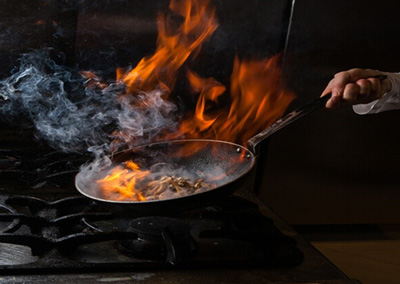
7) Indoor Air Pollutants
Exposure to indoor pollutants such as cooking fumes, wood smoke, and certain chemicals found in household products can contribute to lung cancer risk, especially in poorly ventilated areas
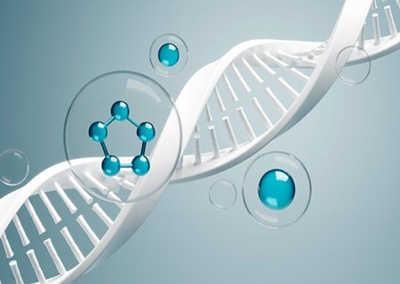
8) Genetic Factors
While most cases of lung cancer are caused by environmental factors, genetic predisposition can also play a role in some cases. Certain inherited genetic mutations may increase susceptibility to lung cancer, particularly in non-smokers.
Symptoms of Lung Cancer
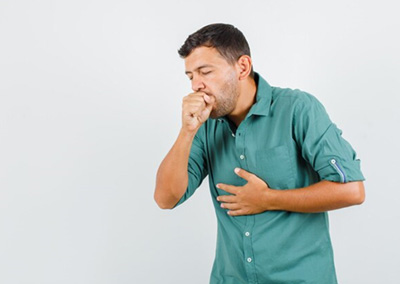
1) Persistent Cough
A chronic cough that doesn't go away or worsens over time is a common symptom of lung cancer. The cough may produce blood (hemoptysis) or sputum.

2) Shortness of Breath
Difficulty breathing or shortness of breath, even with mild exertion, can occur as lung cancer grows and affects lung function.
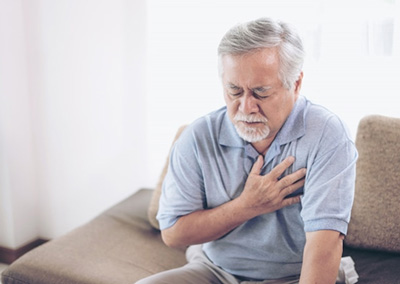
3) Chest Pain
Chest pain that is often worse with deep breathing, coughing, or laughing may occur when lung cancer invades the chest wall lining of the lungs, or surrounding structures.

4) Unexplained Weight Loss
Weight loss without dieting or intentional effort can be a symptom of advanced lung cancer.
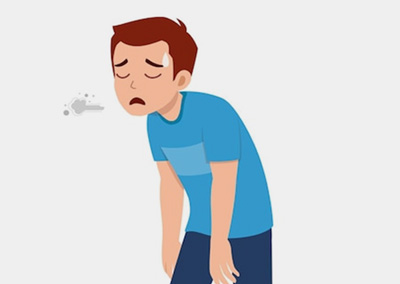
5) Fatigue
Persistent fatigue or weakness that doesn’t improve with rest can be a symptom of lung cancer, especially as the disease progresses.

6) Loss of Appetite
A decreased appetite and changes in eating habits may occur with lung cancer, leading to unintentional weight loss.
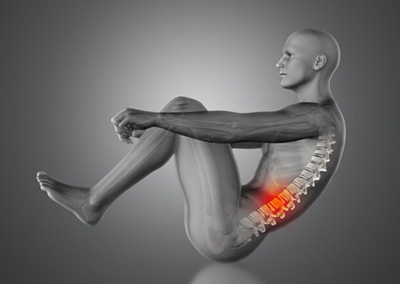
7) Bone Pain
Lung cancer that has spread to the bones may cause bone pain, particularly in the back, hips, or chest.

8) Headaches
Lung cancer that has spread to the brain may cause headaches, seizures, weakness, or other neurological symptoms.
9) Wheezing
Wheezing or hoarseness can develop when lung cancer blocks or narrows the airways, causing airflow obstruction.
10) Coughing up Blood
Blood-streaked sputum or coughing up blood (hemoptysis) can be a sign of lung cancer, although it can also occur with other conditions.
11) Swelling in the face or neck
Lung cancer that affects certain nerves in the chest may cause a collection of fluid (superior vena cava syndrome), leading to swelling in the face, neck, arms, and upper chest.
Complications
- Metastasis : Lung cancer often spreads (metastasizes) to other organs and tissues, such as the bones, liver, brain, or adrenal glands.Metastatic lung cancer can cause symptoms and complications specific to the affected organ or tissue.
- Respiratory complications: Lung cancer can cause respiratory issues such as pneumonia, pleural effusion (buildup of fluid around the lungs), atelectasis (collapse of lung tissue), and respiratory failure. These complications can lead to difficulty breathing, coughing, and decreased oxygen levels in the blood.
- Superior vena cava syndrome (SVCS): SVCS occurs when lung cancer compresses the superior vena cava, a large vein that carries blood from the upper body to the heart. This can lead to swelling in the face, neck, arms, and upper chest, along with other symptoms such as difficulty breathing and coughing.
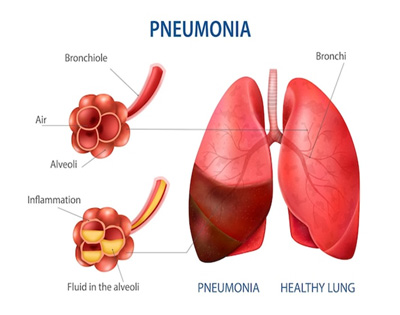
Homoeopathy and Lung Cancer
Homoeopathy offers a holistic approach to managing lung cancer by focusing on the individual's overall well-being and specific symptoms. Homoeopathic remedies, derived from natural substances, aim to stimulate the body's self-healing mechanisms.
Homoeopathic medicines for Lung Cancer
- Ars alb
- Patient suffers from great exhaustion after slightest exertion
- Patient is anxious, restless
- Burning pain in chest
- Cough is worse in midnight, lying on back
- Expectoration is scanty and frothy
- Wheezing respiration
- Pain through right upper third of lung
- Haemoptysis
- Dry cough as from Sulphur fumes, after drinking
- Patient is unable to lie down due to fear of suffocation
- Phosphorus
- Suited to people who are tall , slender with fair complexion
- Cough from tickling in larynx worse in cold air, reading, laughing
- Bryonia
- Dry cough worse in night, eating, drinking, patient must sit up
- With cough there is vomiting with rusty sputum
- Frequent desire to take deep breath
- Difficult and quick respiration, worse every movement
- Cough is worse by going in warm room
- Stitching pain in chest worse on motion better by rest
- Patient has to support his chest while coughing
- Stannum met
- Debility is very marked in this remedy
- Dry cough in evening until midnight
- Cough excited by laughing, singing, talking, lying on right side
- Copious green, sweetish expectoration
- Chest feels sore and weak
- Respiration is short, oppressive with stitches in left side when breathing
- Conium
- It acts well in cancerous conditions
- Great debility in morning in bed
- Weakness of body and mind
- Dry hacking cough, worse in evening, night lying down, talking, laughing
- Expectoration only after long coughing
- Want of breath on taking least exercise
- Constriction in chest
Benefits of Homoeopathic Treatment
- Individualised Care: Homoeopathy recognizes that each person is unique. A homoeopath will assess your symptoms, medical history, and lifestyle to prescribe a personalised treatment plan tailored to your needs.
- Gentle and Natural: Homoeopathic remedies are derived from natural substances and are known for their minimal side effects. They work in harmony with the body, promoting self-healing and overall well-being.
- Holistic Approach: Homoeopathy takes into account not only the physical symptoms but also the emotional and mental aspects of an individual. It aims to restore balance at all levels, providing comprehensive care.
- Long-Term Relief: By addressing the underlying causes of Ulcerative Colitis,homoeopathy strives to achieve long-term relief and improved quality of life.
Patient Review
Consulting a Homeopath
If you or a loved one is diagnosed with lung cancer and are considering homoeopathy, it is essential to consult a qualified and experienced homoeopath. At Sanjivani Homoeopathic Clinic, our skilled practitioners conduct comprehensive evaluations, considering specific symptoms, overall health, and individual characteristics. This personalised approach ensures that each patient receives tailored remedies that address their unique needs and support overall well-being.
Sanjivani Homeopathy Clinic USP
- No homoeopathy Dietary Restrictions:
Allows patients to enjoy foods like onion, garlic, and coffee, ensuring a stress-free treatment journey.
- 24/7 Online Consultations:
Enables convenient access to doctors with detailed counseling, history management, and follow-ups.
- Highly Skilled Team:
Experienced BHMS and MD doctors, supported by multilingual and professional staff.
- Patient-Centric Care:
Simplifies treatment with modern, adaptable solutions and clear communication.
Click Here for Detailed "Sanjivani USP"
FAQ's
- What is homoeopathy ?
Homoeopathy is a holistic science which belives in the law of Similia Similibus Curenter i.e Like Cures Like .It was discovered by Dr Samuel Christian Hahnemannn in 1796.
- Is there any side effects of homoeopathy?
As homoeopathic medicines are made from natural substances this medicines have no side effects and are completely safe to consume
- Is there any diet restriction to take homoeopathic medicines?
There are no diet restrictions for homoeopathic medicines. One should only avoid eating or drinking any liquid other than water at least 30 minutes before and after taking homoeopathic medicines.
Click Here for "Frequently Asked Questions."
Conclusion
Homoeopathy can be a valuable component in the holistic management of lung cancer. By providing individualised treatments, homoeopathic remedies aim to alleviate symptoms, enhance the body's natural defences, and improve the quality of life. Additionally, homoeopathy can help mitigate the side effects of conventional treatments like chemotherapy and radiotherapy. At Sanjivani Homoeopathic Clinic, we are dedicated to offering personalised and effective treatments, supporting patients on their journey to better health and gentle relief from lung cancer symptoms.
Disclaimer : The information provided in this blog is for educational purposes only and should not be considered medical advice. Please consult with a qualified healthcare professional before starting any treatment for Lung Cancer or any other medical condition.


